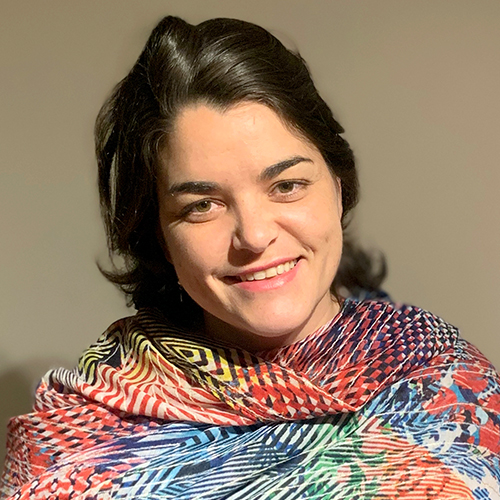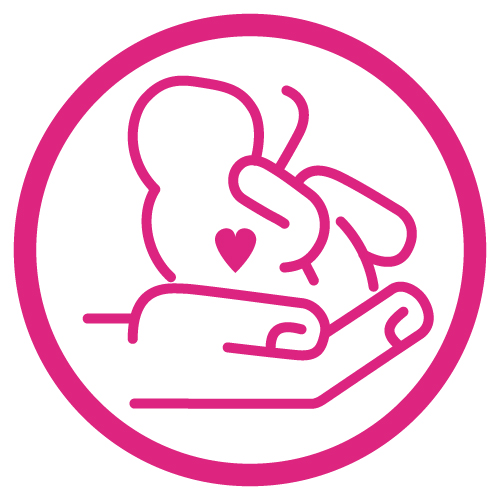 Evidence Based Care in Nicu Online Course(s) & Continuing Education
Evidence Based Care in Nicu Online Course(s) & Continuing Education
Access the latest clinical skills and research for Evidence Based Care in Nicu for NEONATOLOGY professional training. These Evidence Based Care in Nicu online courses provide practice-changing skills and valuable perspectives from leading global experts. This Evidence Based Care in Nicu education has been accredited for a variety of CEUs / CERPs and can be accessed on-demand, at your own pace.
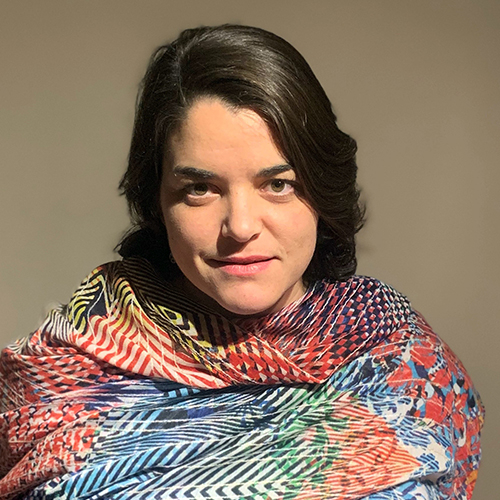
Oral Colostrum Care as an Immunological Intervention in the NICU

Mariana Colmenares Castano was born in Mexico City, and from an early age she was fascinated by animals and nature.She studied medicine at the National University of Mexico (UNAM), and foundher passion as a pediatrician doing her residency at the National Pediatric Institute. When her first child was born she witnessed the lack of knowledge and commitment to breastfeeding within the medical profession, and so she decided to specialize in breastfeeding medicine. She certified as a Lactation Consultant (IBCLC) in 2011.Mariana is a member of the International Lactation Consultant Association, the Academy of Breastfeeding Medicine, and a proud founding member of the National Lactation Consultant Association of Mexico (ACCLAM), where she served on the Board of Directors as Education Coordinator (2014-2019). She is part of board director for the Academy of Breastfeeding Medicine for a 3 year period (2019-2022) and recently named as secretary for the Academy of Breastfeeding Medicine. Mariana is a member of the team for Breastfeeding Country Index BFCI, a project from Yale University and Universidad Iberoamericana. She is consultant for the National Health Institute in Mexico and has collaborated with UNICEF in breastfeeding projects and part of the steering committee for the WHO. She has spoken at national and international conferences, co-published numerous articles and co-authored a chapter for the National Academy of Medicine. At the moment she is a Clinical Fellow in Community Paediatrics in London.
Topic: Breastfeeding The Baby With Congenital Heart Disease - [View Abstract]
Topic: Breastfeeding with Insufficient Glandular Tissue - [View Abstract]
Topic: Clinical Assessment and Management of Jaundice in the Newborn - [View Abstract]
Topic: Oral Colostrum Care as an Immunological Intervention in the NICU - [View Abstract]
Breastmilk must be the food for every human on earth. During the last decades we have been learning much more about the immunoprotective and immunomodulating properties of human milk, specifically colostrum. With advancements in neonatal care, we also have new challenges. As health care professionals it is an ethical responsibility to protect and promote breastfeeding practices for every family. Oral colostrum care is the use of own mother's colostrum in the cheeks and mouth of the baby not for a feeding purpose. It is an opportunity to initiate an immunological intervention in small or sick babies, allowing interaction of immunological properties with the linfoid tissue, promoting and improving microbiome and immune response. The mother and the family can also benefit from this intervention improving and enhancing integral participation and prevalence of breastfeeding in the long term.

View Details / Enroll


Leslie Parker has a dual position at the College of Nursing and the College of Medicine at the University of Florida where she is a professor. She has been a neonatal nurse practitioner since 1990 and continues to practice as a neonatal nurse practitioner in the NICU at UF Health. She was the tract coordinator of the neonatal nurse practitioner program from 1992-2011. She has been involved in human milk research for nearly two decades and focuses on improving milk production in mothers of critically ill and premature infants. She is funded by the National Institutes of Health for her team’s work regarding neonatal nutrition including the risk of feeding tube contamination, risks and benefits of gastric residual evaluation and optimizing consumption of breast milk for preterm infants.
Until recently, routine monitoring of gastric residuals has been standard care in most neonatal intensive care units (NICUs). Rationale for this practice includes early recognition of feeding intolerance and necrotizing enterocolitis. However, gastric residuals are often used to direct feeding decisions and thus their use can result in delays and interruptions in feeding resulting in an increased risk of complications. Recent evidence suggests that the routine monitoring of gastric residuals prior to every feeding may not be clinically necessary and other clinical indicators may be sufficient to monitor for feeding intolerance and necrotizing enterocolitis. This presentation will describe practices clinicians are currently using to monitor gastric residuals In addition, an overview of current evidence including the risks and benefits of monitoring gastric residuals, alternatives to monitoring gastric residuals, and how to best change unit practice in order to decrease the routine use of aspirating and evaluating gastric residuals prior to every feeding will be presented.
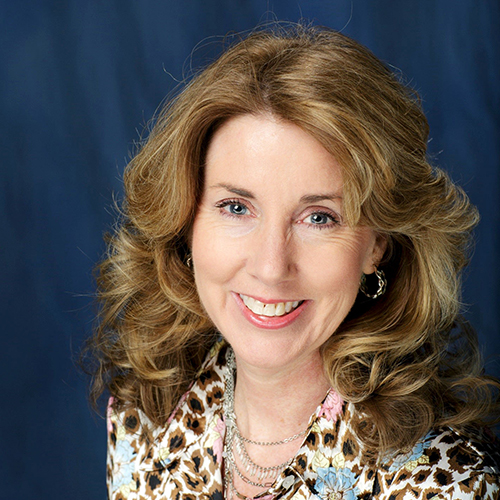
View Details / Enroll
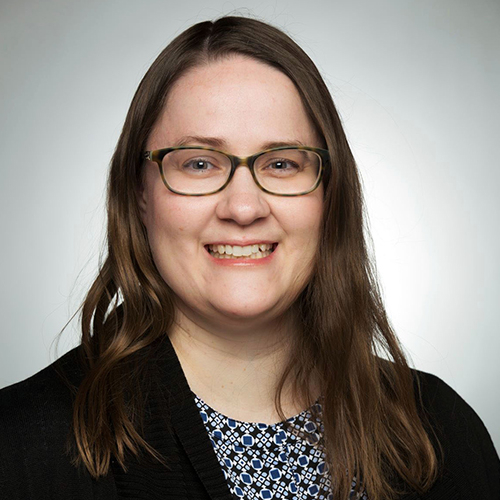
The Classics Versus New and Upcoming Therapies: Which is Better for Neonatal Seizures?

M. Petrea Cober, PharmD, BCNSP, BCPPS, FASPEN, attended the University of Tennessee, College of Pharmacy in Memphis, Tennessee. She completed her PGY1 Pharmacy Residency at Penn State Milton S. Hershey Medical Center in Hershey, Pennsylvania, and her PGY2 Pharmacy Residency in Pediatrics at the University of Michigan Hospitals and Health System in Ann Arbor, Michigan. She is currently the Clinical Pharmacy Specialist - Neonatal Intensive Care Unit and PGY1 Residency Program Director at Akron Children's Hospital where she provides clinical services and precepts pharmacy students and PGY1 pharmacy residents. She is also a Professor in the Department of Pharmacy Practice at Northeast Ohio Medical University (NEOMED). Her didactic teaching is in the areas of pediatrics, women’s health, and nutrition. She was awarded the 2021 Stanley Serlick Award from the American Society for Parenteral and Enteral Nutrition (ASPEN) recognizing her contributions to parenteral nutrition safety and serves as the current Chair-elect of the ASPEN Parenteral Nutrition Safety Committee.
The lifetime risk of seizures is highest in the neonatal period. While the etiology of neonatal seizures is commonly the result of acute brain injury, other possibilities exist. Unfortunately, the need to treat neonatal seizures with anti-epileptic therapies or the timing and duration of therapeutic management is still vastly unknown. While phenobarbital has long been considered the mainstay of first-line medical therapy for neonatal seizures, newer agents are increasing in their popularity due to fewer side effects and concerns regarding potential neuronal apoptosis with phenobarbital. This presentation will discuss the etiology, need and timing for therapeutic management, compare and contrast various anti-epileptic therapies, and first-line, second-line, and therapies following initial failure for neonatal seizures.
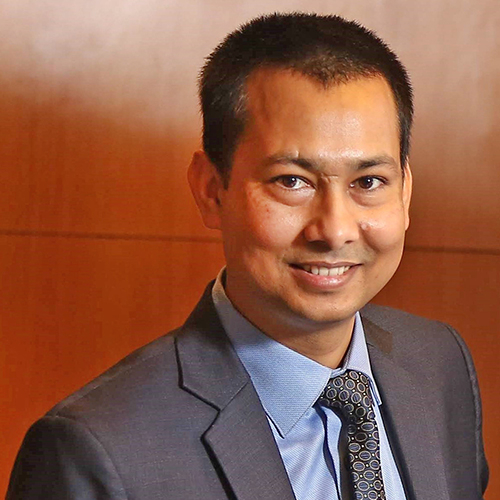
The Golden Hour of Neonatal Life: Improving Outcomes Through Evidence-Based Interventions

Dr. Ankur Bio Update - Dr. Kumar Ankur, MD, DNB is working as an Associate Director & Head of the Department of Neonatology at BLK MAX Super Speciality Hospital Delhi, India. He has been working in the field of neonatology with private and non-goverment organisations for improving neonatal healthcare in the country. He is the national faculty and trainer for FBNC (Facility based neonatal care), Neonatal Resuscitation, Kangarroo Mother Care (KMC) and the national assessor for Neonatology Fellowship accreditation programme of India. He has been invited as an expert speaker, faculty, chairpersons for various national and state level conferences and workshops. He has many publications in national & international journal and authored many chapters, guidelines published by Indian Academy of Pediatrics & National Neonatology of Forum Delhi & India. He is also the co-editor of Handbook of Neonatal Clinical Practices. He is also running training program in neonatal Fellowship for postgraduate students & neonatal nurses. Currently he is also the Secretary of prestigious National Neonatology Forum, Delhi. National Neonatology Forum (NNF) is a strong and large body of more than 8000 neonatologists across India and abroad. NNF has been actively involved in advocacy, policy making, research and ensuring quality health care to newborn for the last 4 decades. He had been past Secretary (2014) & President (2018) of Indian Academy of Pediatrics (IAP), Central Delhi Branch.
Topic: Tongue-Tie and the NICU: A Neonatologist Perspective - [View Abstract]
Prematurity is the leading cause of death across the globe, mainly in low resource settings. Infants born at less than 32 weeks gestation, are prone to developing hypothermia, hypoglycemia, and hospital acquired infections after birth. For them, the initial 60 minutes of holistic approach is crucial for long-term outcomes. The “Golden Hour” of neonatal life is defined as the first hour of post-natal life in both preterm and term neonates. This concept includes practicing particular evidence based interventions in the initial sixty minutes of postnatal life for better long-term outcomes like marked reduction in hypothermia, hypoglycemia, intraventricular hemorrhage (IVH), bronchopulmonary dysplasia (BPD), and retinopathy of prematurity (ROP). This presentation will provide a look at the various components of neonatal care that are included in the “Golden hour” of preterm and term neonatal care. Healthcare professionals attending the birth of high risk infants like VLBW (very low birth weight, less than 1500 grams) or high-risk term neonates should be well trained in attending such deliveries and should be able to implement all the management protocols during the golden first 60 minutes of life.
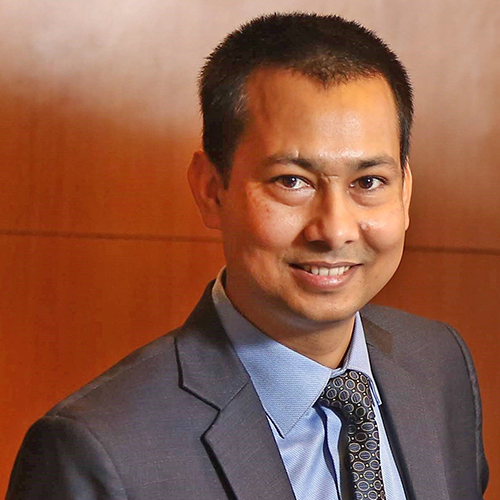
View Details / Enroll
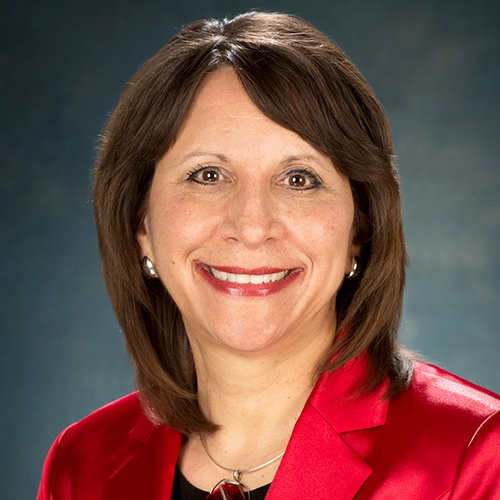
The “So What Outcome” Factor: A Key Strategy for Speeding the Translation of Evidence-Based Interventions Into Practice

Bernadette Mazurek Melnyk is Vice President for Health Promotion, University Chief Wellness Officer, Dean and Helene Fuld Health Trust Professor of Evidence-based Practice, the College of Nursing, Professor of Pediatrics and Psychiatry at the College of Medicine and Executive Director of the Helene Fuld Health Trust National Institute for Evidence-based Practice at The Ohio State University. Dr. Melnyk is recognized nationally and globally for her clinical knowledge, expertise in evidence-based practice, mental health, and intervention research as well as her innovative approaches to health and wellness. Dr. Melnyk was the first Chief Wellness Officer appointed at a University in the U.S. She founded and is the current president of the National Consortium for Building Healthy Academic Communities. Dr. Melnyk is an elected member of the National Academy of Medicine, the American Academy of Nursing, the National Academies of Practice, and the American Association of Nurse Practitioners. She is a member of the board of directors for the National Forum for Heart Disease and Stroke Prevention. Dr. Melnyk has over $33 million dollars of sponsored funding from federal agencies and foundations as a PI, is an editor of seven books, and has authored over 450 publications. As a member of the National Academy of Medicine’s Action Collaborative on Clinician Well-being and Resilience, she is working to address the national crisis of healthcare provider burnout.
This presentation will describe the state of translating research and evidence-based interventions into real world clinical settings to improve outcomes. Barriers and facilitators will be discussed. The “so what” outcome as a critical factor in speeding the translation of evidence based interventions into clinical settings will be highlighted. The presentation also will describe two successful programs of research as examples of success in scaling evidence-based interventions into practice. The Advancing Research and Clinical practice through close Collaboration (ARCC) Model will be emphasized as a successful framework for the rapid translation of evidence into practice to improve outcomes.



